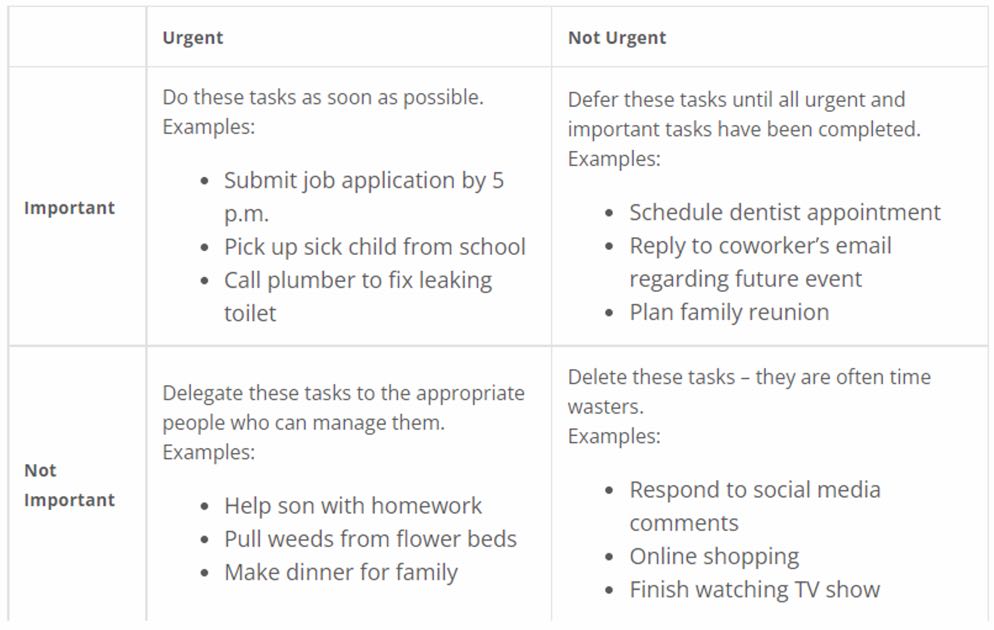When talking of money, it is normal to use the verb “spend”, which draws our attention to the fact that the amount of money anyone has is limited, usually by their income. This means any money given to a certain purpose is money sacrificed. It cannot be used for other things.
The same is true of time. When talking about how we use time, the same verb is often used: ‘I spent time doing this’, ‘how did you spend your afternoon?’. This similarly draws attention to the fact that everyone’s time is limited.
We only have 24 hours in the day. In this sense, time is more limited than money. It may be possible to increase the amount of money you have to play with by taking on a new job, or reducing your outgoings. Time, however, only ever exists in 24 hour chunks. Regardless of what you do, you will never have more than 24 hours in the day.
It is possible to get better value for your money by spending it more carefully. For example, if you live in the UK, you will get a lot more for your money if you buy your groceries from Aldi rather than Waitrose. Similarly, it is possible to increase the value of your time by paying close attention to where it is spent. This is the foundation of time management.
By having a profound appreciation for the limited amount of time in each day, and being aware of how to best spend it, you can maximise its value.
Time management has become increasingly important in the digital world of work where online meetings mean much of the day is spent hopping between calls, with little time left to complete daily tasks. In this situation, making the best use of every spare 30 minutes becomes crucial to workplace productivity. This is a key skill in a client facing profession like consultancy, where consultants have regular online meetings not only with their project team but also with clients. Despite having a heavy daily call-load, it is still necessary to get the client work done.
Here are four ways that you can make the best use of your time during a typical day.
1. Set Priorities
Managing your time effectively is largely about prioritising the order in which you complete tasks. Categorising activities based on their importance ensures that your time is spent where it matters most, leaving spare time to manage less important tasks.
A good way to do this is to categorise tasks based on their level of importance and urgency using a simple two-by-two matrix:
Distinguishing between Urgent and Important Tasks
Source: The University of Georgia
2. Use Planning Tools
As an alternative to paper based to do lists, there are many electronic tools that you can use to improve your productivity.
These apps typically fall into four categories:
- Time Trackers – Provide you with awareness of how your time is being spent. For example, ‘Harvest’ is an app that allows you to track your time and turn your billable hours into invoices.
- Time Savers – Help you to increase your productivity and break time-wasting habits. For example, ‘Focus Keeper’ is an app that uses the Pomodoro Technique to help you work intensively, stay focused, and avoid burnout.
- Task Managers – Allow you to prioritize and organize tasks to improve time management. For example, ‘Trello’ allows teams to collaborate on projects and organize workflows.
- Habit Developers – Encourage healthy habits to make it easier for you to manage your time effectively. For example, ‘Habit Tracker’ allows you to create and track habits in order to reach your goals.
When using such tools, it is useful to bear the following in mind:
- Record your information directly in the tool itself. If you make notes elsewhere, which need to be transferred into the tool, then this introduces an extra step, which will waste time. This makes things harder than they need to be and to some extent defeats the purpose of using a planning tool.
- Review your planning tool daily. This will ensure that using it becomes a habit, and that your tasks are up to date.
- Back-up your data. Online methods are convenient but they create a degree of risk. If you are using time management software for business purposes, then it is good practice to back up your data.
3. Avoid multitasking
Studies have shown that, although doing two tasks at once feels like a time saver, multitasking doesn’t work. Instead of completing two tasks at once, your brain is actually rapidly switching between the two tasks, from one to the other. This reduces your focus on each task, and so tends to reduce your overall productivity and cause you to miss important details. As a result, the more efficient approach is to complete one task fully before switching to the next.
4. Don’t sacrifice your health
When busy, people tend to work for as long as possible, thinking that this will allow them to get more done. However, taking short breaks allows you to rejuvenate your energies and refresh your mind. This can actually allow you to complete tasks more easily and effectively than if you had stubbornly stuck to your desk.
Take 5 to save 15.
Go for a walk, have a cup of tea, or simply step away from your desk for two minutes.
The bottom line
Time is a valuable resource. We each get the same fixed daily allocation, and so in order to manage your time productively it is necessary to take a proactive approach.
Set some SMART goals, use productivity software, focus on one thing at a time, and work in short intense intervals. Taking breaks can help you to maintain your long term health as well as to work more efficiently and effectively towards your goals.
Sukhi Ruparelia is a graduate from Warwick Law School currently studying an MSc in Business with Consulting at Warwick Business School. She has a keen interest in the business psychology of consulting and plans to enter the industry in the near future.
Image: Pexels

